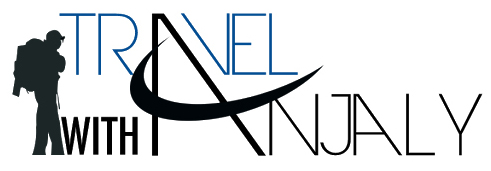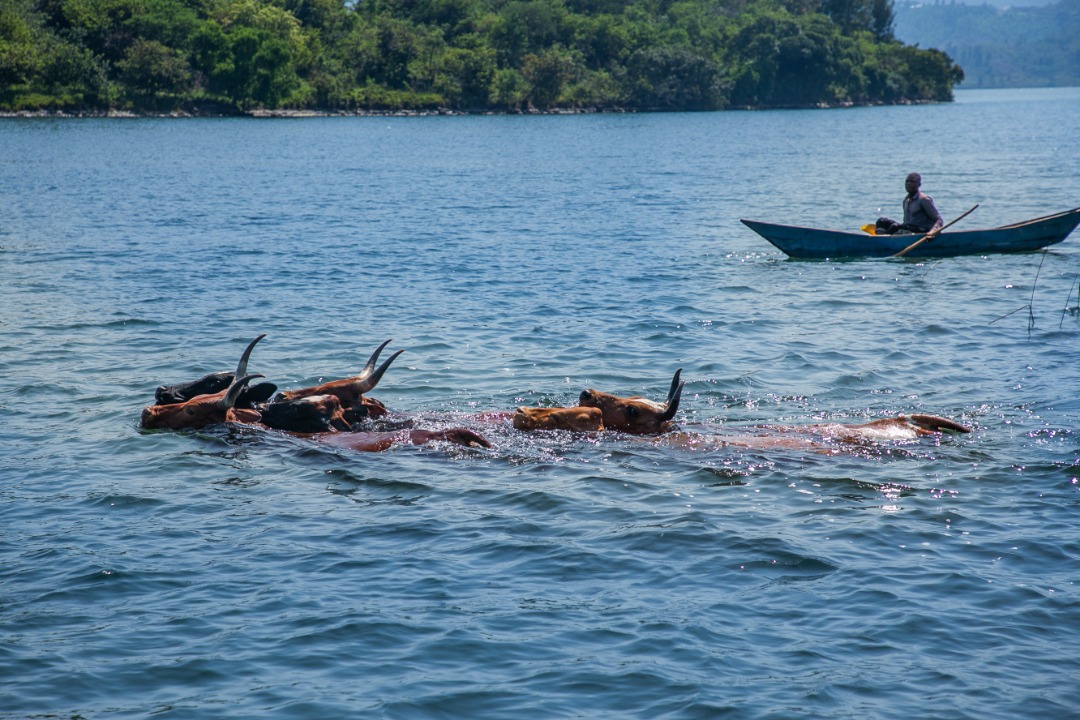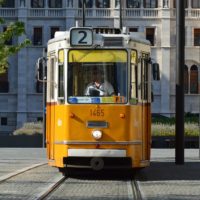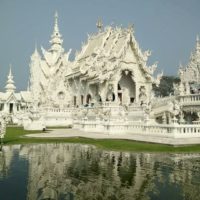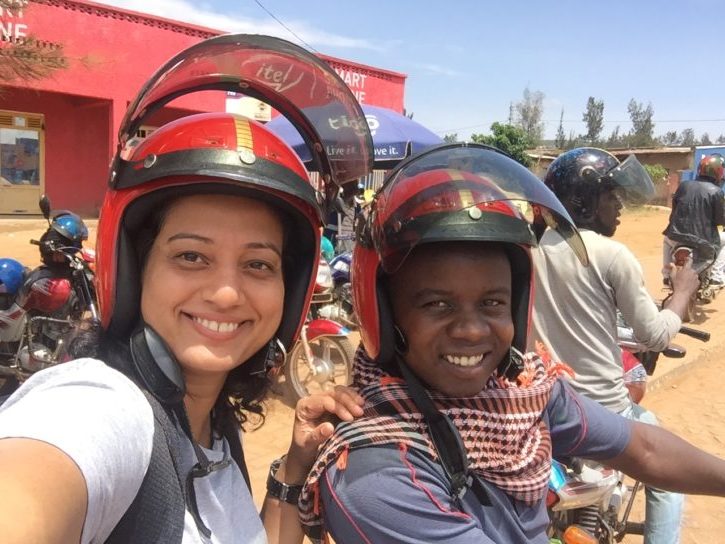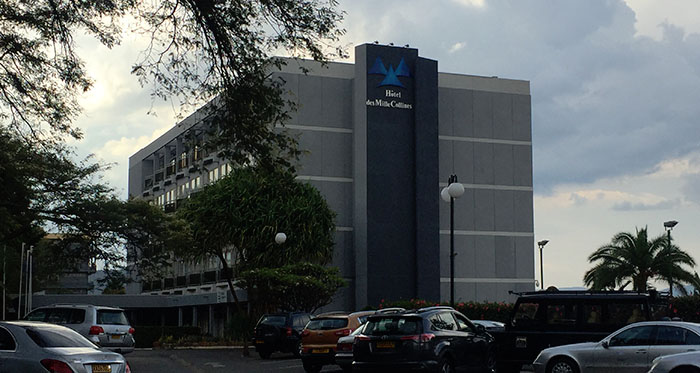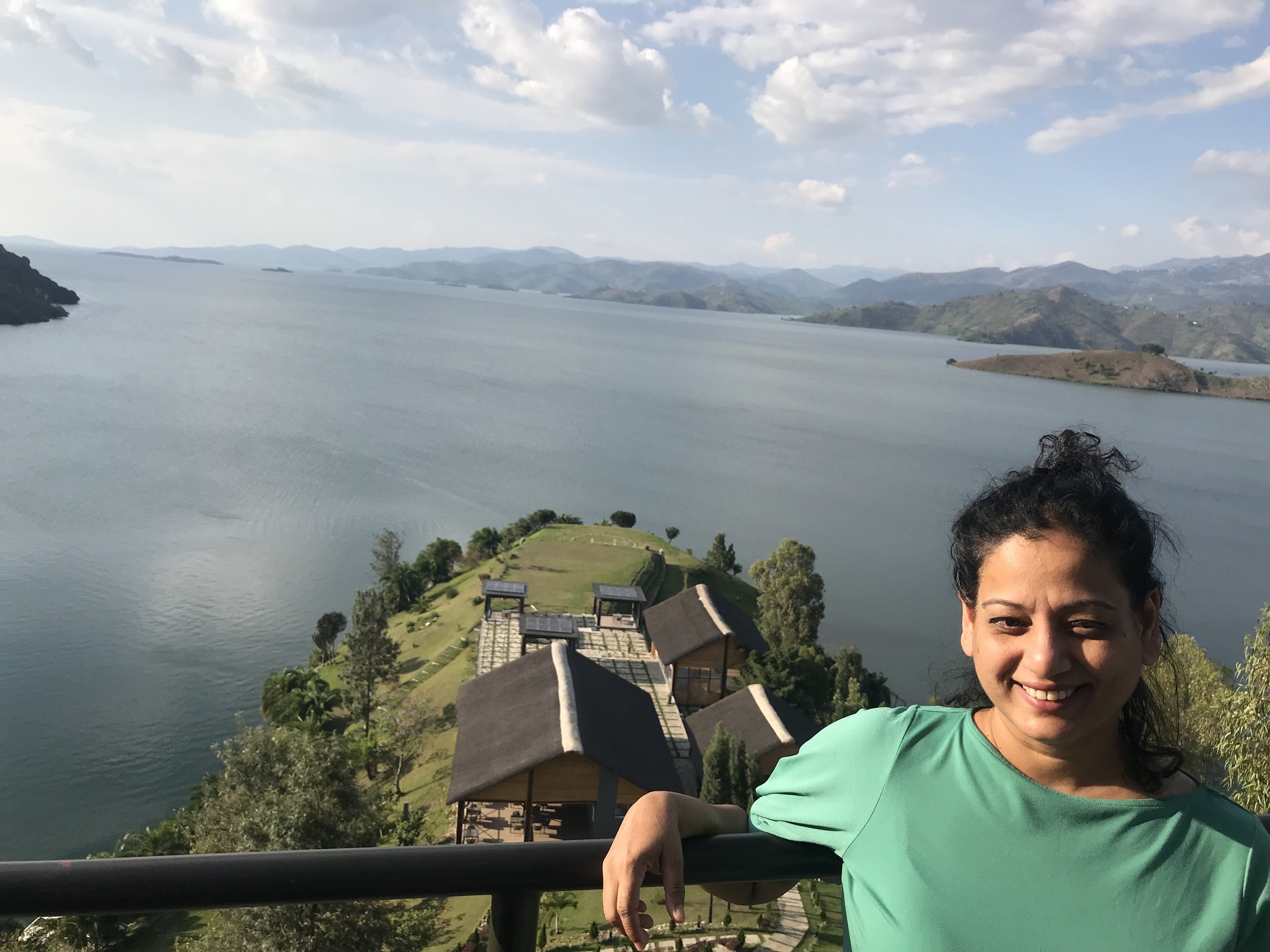 Rwanda’s largest lake is more than a ‘beach’ destination
Rwanda’s largest lake is more than a ‘beach’ destination
To most people I know, a holiday feels complete only when there is “swimming in the sea” involved – or at least if it involves sun and sand and the ubiquitous hammock and coconut water. So, my suggestion of a holiday in Lake Kivu, Rwanda, might be a bit of a letdown. But as they say, riding one’s luck is a guarantee of adventure, and this I found out in Rwanda, a landlocked country and my favourite on the African continent.
Nestled in Africa’s Great Rift Valley, Lake Kivu, Rwanda’s largest lake and the sixth largest in Africa, is surrounded by jaw-dropping mountains, with deep, emerald, green waters covering a surface area of 1677 square miles.
And it offers a beach experience like no other.
Lake Kivu is an adequate substitute for the sea
I am here, in Rwanda, looking for mountain gorillas but that is not the scope of my time here. Rwanda, as I am discovering, is a hidden gem. I head west of Nyungwe National Park, where a whole new world awaits me. Dense rainforests disappear and Lake Kivu glitters in the light of the setting sun. Viewed from one of the hills in Karongi province where my hotel is located (halfway between Rubavu and Cyangugu), the lake looks like a fjord.
And it holds immense possibilities of adventures.
And because we have arrived closer to dusk, we get to see the best of the evening with promises of more in the morning. I check in to Cleo Lake Kivu.
No sooner we chug along on a motorboat towards the green headlands and high mountains of the neighbouring country Congo. A glance around makes it clear why Rwanda is called the land of 1,000 hills: in the golden light of dusk, the countless silhouettes of hills and mountains stand out picturesquely against the pink sky.
The lake has a unique feel; reminiscent of what you could describe as being an inland freshwater sea. Filled with volcanic islands, surrounded by beautiful beaches, terraced hills and fishing villages, all gives it a dramatic, picturesque and very charming setting.
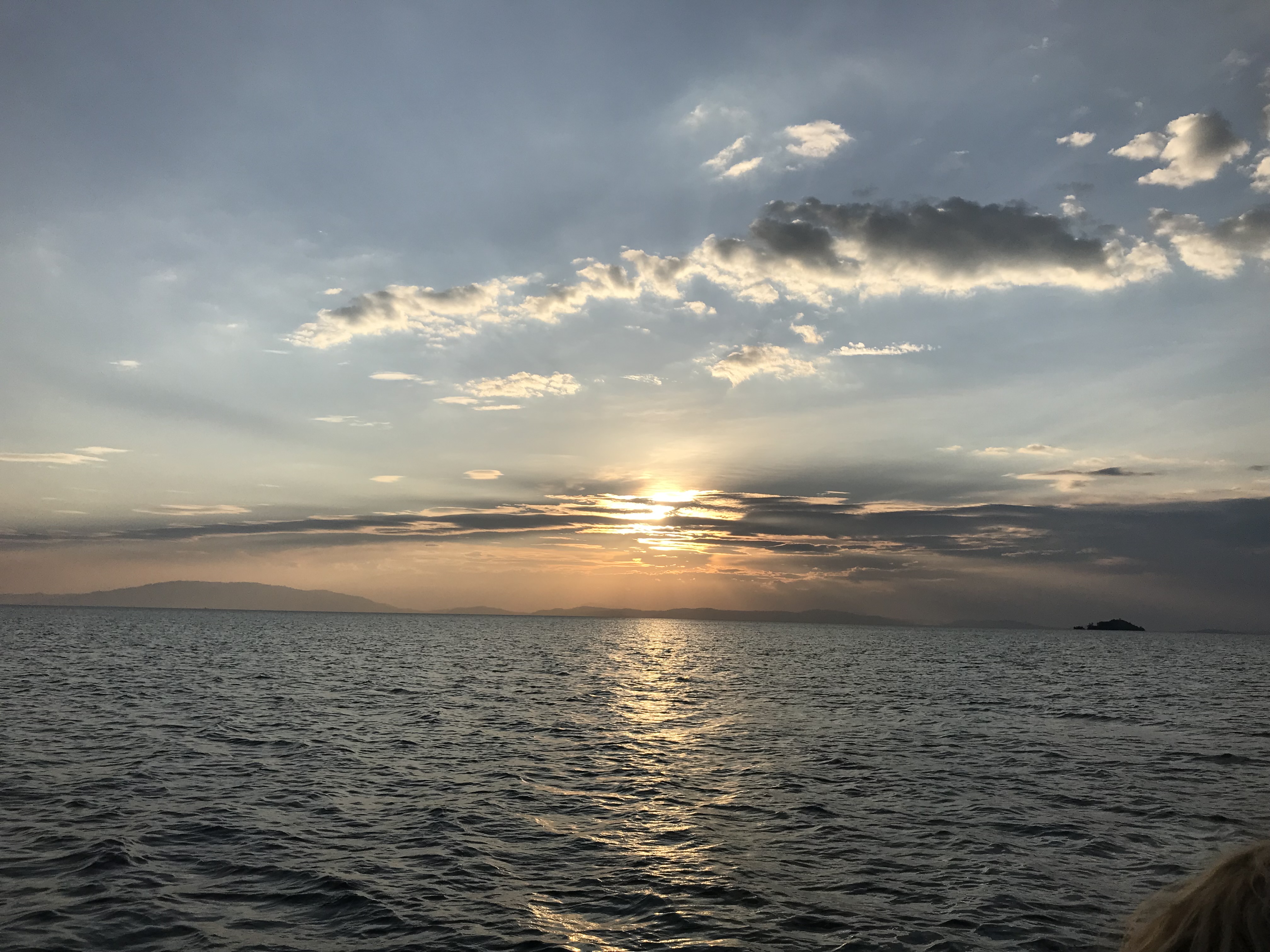 Evening comes quickly and with it another experience I will always cherish. As sunset approaches hundreds of extraordinary, hand-made three-hulled fishing boats with their characteristic long poles attached to their bows and sterns, become slowly silhouetted against the twilight sky. The wind is still. The fishermen paddle out with remarkable agility and speed, working in unison, they sing rhythmically to synchronize their paddle strokes, giving encouragement to each other. In small groups, they seek the deep water a few kilometres out into the lake from where they cast their nets and fish throughout the night.
Evening comes quickly and with it another experience I will always cherish. As sunset approaches hundreds of extraordinary, hand-made three-hulled fishing boats with their characteristic long poles attached to their bows and sterns, become slowly silhouetted against the twilight sky. The wind is still. The fishermen paddle out with remarkable agility and speed, working in unison, they sing rhythmically to synchronize their paddle strokes, giving encouragement to each other. In small groups, they seek the deep water a few kilometres out into the lake from where they cast their nets and fish throughout the night.
It is a sight to behold. Then as if to keep up the rhythm, they begin to sing – slowly at first and then break into a chorus, their lamps burn bright – this is how they attract the sambaza (a small finger-sized fish) and tilapia towards their nets. With so many lamps tinkling on the Lake, it is hard to tell where the sky begins or ends.
This is both an adventure and romance rolled into one evening.
We return to the hotel for the night, with promises of another surprise in the morning.
Mornings means more adventure on the Lake
The next morning Rudolf – our boatman – guide – is waiting for us on the shore. The sun is barely up but he is ready with the kayaks. Among us there are a few kayaking enthusiasts, and I am only a beginner but brave the odds and risk paddling in the now mirror-like smooth lake. “Only paddle around that green island,” Rudolf tells me. “I’ll be right behind you.”
He was. Soon the expert kayakers were out of sight as I struggled to maintain a pace. Rudolf pulls up beside me and takes matters into his hands. “If you stop for a moment, you can hear the hawks in the trees. It is their favourite time to hunt.” He shows me a hawk, which in turn watches us with interest from a rock. I am wide awake and suddenly the sun rises over the hilltop and makes the lake shine.
Maybe I haven’t made it as far as the little green island, but I have had a morning of a lifetime. I heard the hawk.
The legend of the swimming cows
After a hurried breakfast, we set off on a boat trip to an island somewhere in the middle of Lake Kivu. The journey out to the island is surprisingly calm, although there is a suggestion of rain later. The rolling hills are bluish black this morning and we sail past picturesque little islands till we come to our next surprise.
The engine is left to idle near a small but what looks like a habited island.
“Now you wait and watch.” The boatman tells us, dropping anchor.
As if on cue, first one cow, then two, then dozens, lowing and swishing their tails begin to drop into the lake. This prompts a round of discussion – can cows swim?
As if by magic, the numbers have multiplied and hundreds of cows and before our very eyes they begin to swim to the nearby island. It is easy to see why. The little island is green – tall green grass sway in the gentle wind and like a magnet the herd swim to it. Then a cowherd appears at the water’s edge and waves at us nonchalantly and pulls out a long wooden canoe and begins to paddle after his herd.
“This is bizarre,” someone exclaims. “Who knew the cows could swim? Have they been trained?”
This question is lost on the boatman and we continue watching, stupefied. We drift closer to the island of grazing cows, the cowherd has arrived and is making his way uphill, whistling.
As we watch, the cows, unfazed by the curious onlookers, chew placidly at the hillside.
“The farmers around Karongi use the small islands as grazing pasture for their cattle. Instead of transporting the cows by boat, they have taught them to swim there,” the boatman offers at last. The mystery is cleared and we proceed to the next stop, another, smaller island which had, as promised, a monkey which turned out to be one of four on the island. To my delight there was more time to explore on this island, with a few good trees to climb and some strange fruits to pick.
The next stop was the more promising one and much needed. Hours on a speeding boat does good things to your appetite, I might add.
*If kayaking isn’t your thing, you can opt to ride in the motorized boats – and if you choose, you can become the driver yourself.
Coffee drinking is a visual experience here
They always say the journey is more important than the destination and in the case of a coffee experience on Lake Kivu—the journey is simply wonderful. And as a coffee lover, imagine my joy at the chance of visiting a coffee washing station – Kinunu Washing Station and learning how it’s grown, picked, washed, dried and roasted. This might not sound all that thrilling but with Rwandan coffee, it is a whole new experience. As we trudge uphill through a plantation, I am acutely aware of how every bean transforms into the wonderful brew that makes Rwandan coffee so sought after.
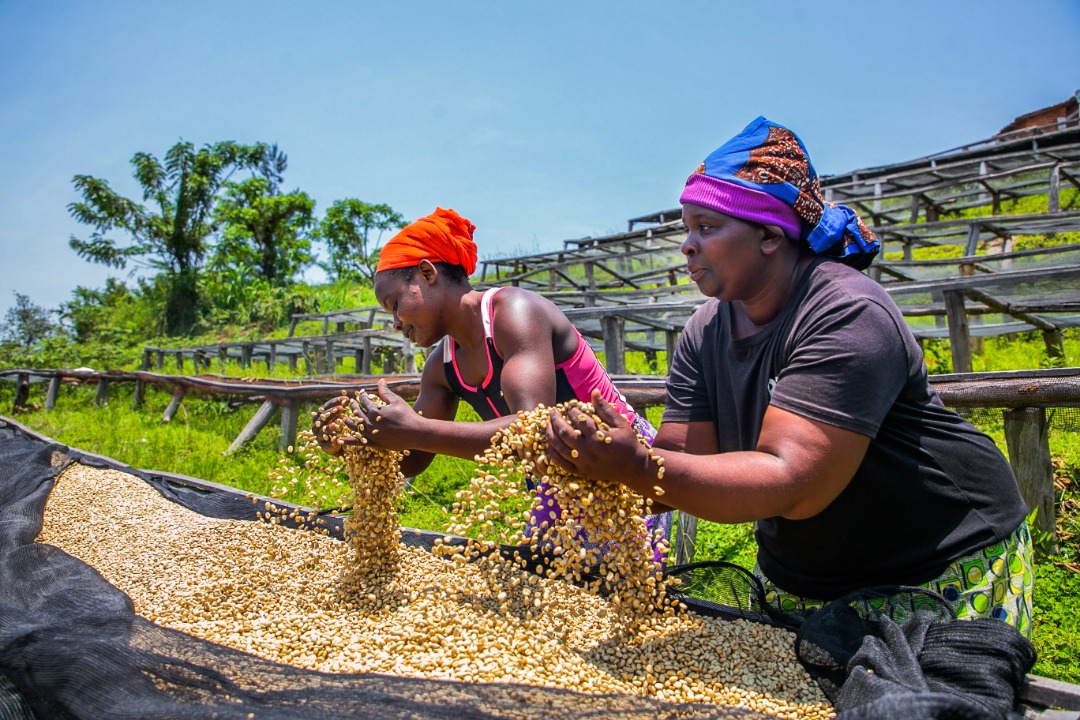
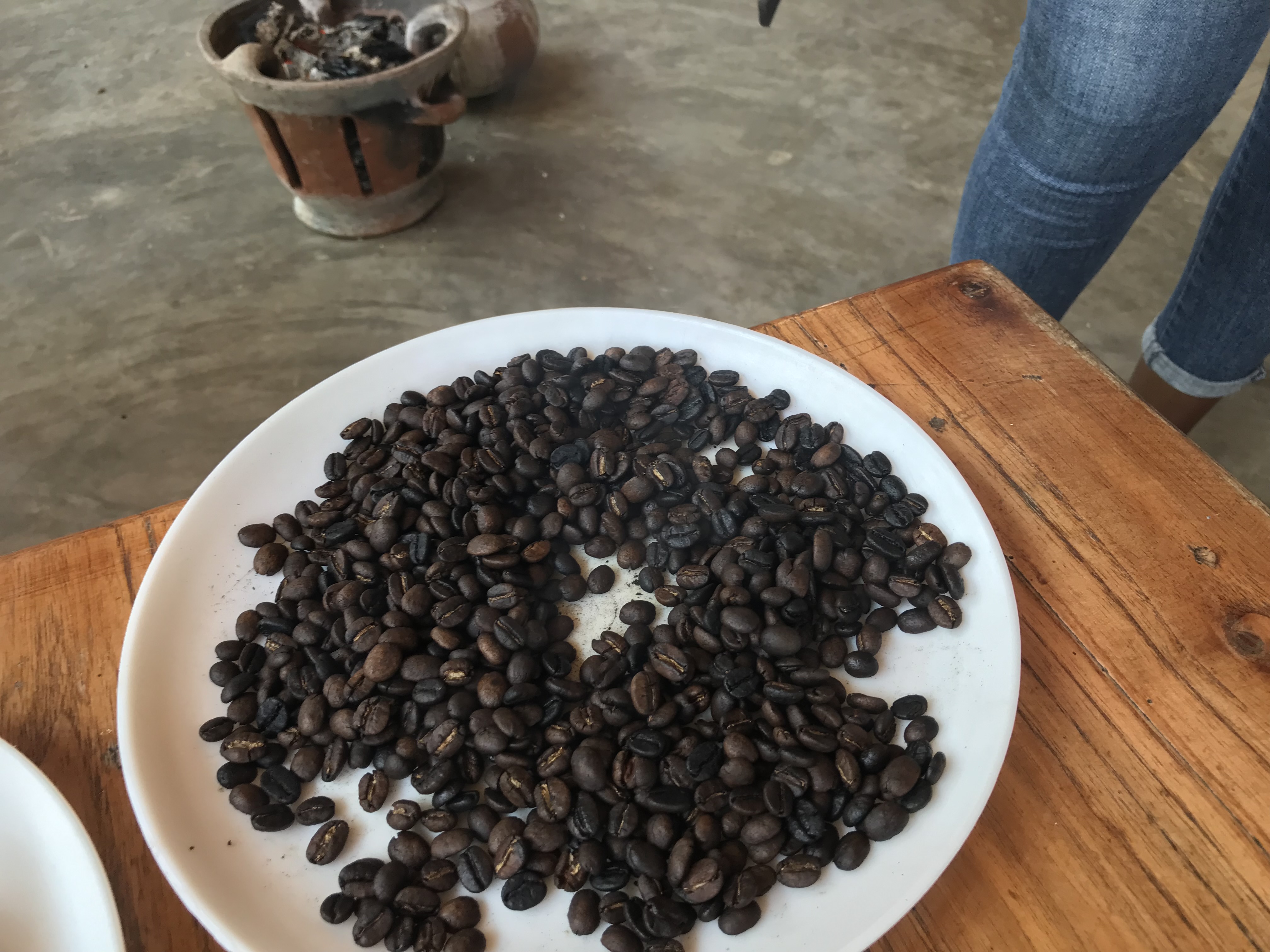
In other words, I drink the coffee with my eyes, ears and nose before putting my lip to the cup.
I am about to have an immersive coffee experience quite unexpectedly. We spread out and engage in conversation with people who work there, get answers where you can get to know the people who work there, ask questions and get answers and learn pretty much everything there is to learn about coffee production in Rwanda.
It is a pity that it is not easy to find Rwandan coffee internationally because I really am in love with the flavour of Rwandan coffee. We sit down to a coffee-tasting ceremony to initiate us into the world of Rwandan coffee. I enjoyed the smell of roasting, the sound of pounding the roasted beans and hissing of steam as hot water is poured into the grind.
The vibrant acidic taste of coffee with a hint of sandalwood, peach and pecans is the perfect end to a holiday on the Lake.
Who needs a hammock and coconut water now?
Why you should visit Lake Kivu
- Swimming is possible in the Lake, as there are no crocodiles or hippos lurking in these waters.
- Sportfishing is possible (where the fish caught is immediately returned to the waters, also known as catch and release.
- Go island hopping, notable among them being Napoleon Island (for its fruit bats) or Amahoro Island (known as one bar island) or Nyiramirundi island for coffee tours.
Did you know
- Rwanda is known as the land of a thousand hills. The country’s stunning scenery and warm, friendly people offer unique experiences in one of the most remarkable countries in the world.
- Rwanda is blessed with extraordinary biodiversity, with incredible wildlife living throughout its volcanoes, mountain rainforest and sweeping plains.
- It is one of the few places you can see the mountain gorillas.
- Nyungwe Forest and Volcanoes Park offers immense opportunities for hiking and trekking
- In Rwanda’s Akagera National Park, you can even spot the Big 5.
